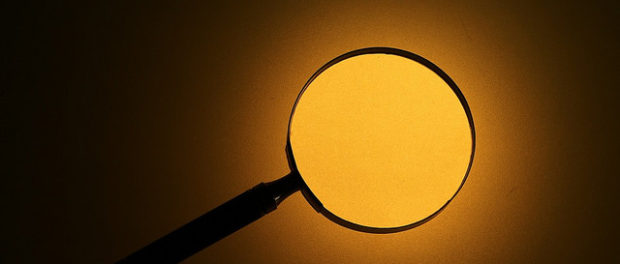Board defamed licensee in seeking arrest for unlicensed practice
(Alexander v. Louisiana State Board of Private Investigator Examiners)
By providing a copy of the letter without determining whether the investigator was subject to an exemption from licensure, the board had committed defamation, the court said in its February 17 decision.
Alexander held a Louisiana private investigator license from 1997 to 2006 and, in 2000, he began investigating worker compensation cases for the city of New Orleans. Although he let his investigator license expire in 2006, he continued to investigate worker’s compensation claims for the city under contract with a third-party claims administrator until 2009. He believed that that contract status statutorily exempted him from the need for a license.
In 2009, another investigator, Wayne Centanni, filed a third complaint against Alexander, alleging that he was improperly investigating without a license in the course of his work for New Orleans. Centanni compiled a large binder of professional and personal information about Alexander, including information about expunged arrest records and information obtained from the board through a public records request, and sent copies of the information to the board, the city, Alexander’s employer, and even a local television station. On receipt of the file, Alexander’s employer ended his contract.
The board reacted to the receipt of the file by sending a cease-and-desist letter to Alexander ordering him to stop his investigation work due to his lack of a license. In response, Alexander filed suit against the board, among others, accusing it of improperly disclosing information about him to Centanni and sending him the cease-and-desist letter without first granting him a hearing, but the case was dismissed in 2010.
Alexander continued to provide investigative services under contract for another governmental entity, the St. Charles Parish School Board. However, in 2011, the New Orleans Metropolitan Crime Commission contacted the School Board to inform it that Alexander was improperly operating without a license and that he had been issued a cease-and-desist order by the investigator board. The School Board’s superintendent then contacted law enforcement to request an investigation into whether Alexander had violated the law when he performed investigatory work for the School Board.
After being contacted by the St. Charles Parish sheriff, the investigator board provided him with a copy of the cease-and-desist letter, informed the sheriff that Alexander would have been in violation of private investigator laws if he had worked as an investigator for the school board without a license, and urged the sheriff to take legal action against Alexander. Based on that information, the sheriff successfully applied for a warrant for Alexander’s arrest; Alexander turned himself in after learning of the warrant. The New Orleans Times-Picayune reported on the incident.
In 2013, Alexander filed a second suit against the investigator board, claiming that it defamed him and violated his constitutional rights when it sent the cease- and-desist letter in 2009 and that it had violated state public records laws by disclosing his expunged criminal record to Centanni. After a trial, a jury found the board liable to Alexander for defamation and abuse of process, awarding him $300,000 in damages, but it rejected his claims for intentional infliction of emotional distress and Constitutional violations.
Unhappy with the outcome of the trial, Alexander filed to annul the verdict, alleging that the board defendants presented perjured testimony and fraudulent documents at trial. The court dismissed Alexander’s petition, and both parties appealed the final decision. The case made its way to the Court of Appeal of Louisiana for the Fourth Circuit, which issued a decision February 17.
Judge Rosemary Ledet, discussing the substance of Alexander’s suit, ruled that, by contacting the St. Charles Parish sheriff’s office and urging them to prosecute Alexander for unlicensed practice, the board had committed defamation.
During the trial, board director James Englade was asked about the possibility that Alexander was subject to an exemption to the state’s licensure requirements. He responded that the board never answered the exemption questions before it sent the cease-and-desist letter or before a board investigator contacted the St. Charles Parish sheriff’s office to inform them that Alexander was investigating in violation of the law. Because the board defendants were unable to prove, at trial, that the statements contained in the cease-and-desist order were true, Judge Ledet wrote; their actions constituted defamation.
And, although the board was normally entitled to a raft of different privileges and immunities when it disseminates information of the type on the cease-and- desist order, by disregarding the possibility that Alexander’s investigatory actions were exempt from licensure, it had engaged in “willful, wanton, and reckless misconduct.” Thus, the court held, the board had lost the ability to claim those exemptions from liability.
The board defendants also claimed that the $300,000 jury award was excessive but, noting the high level of publicity surrounding Alexander’s arrest and the subsequent damage to his reputation and investigator career, the court determined the amount reasonable.

